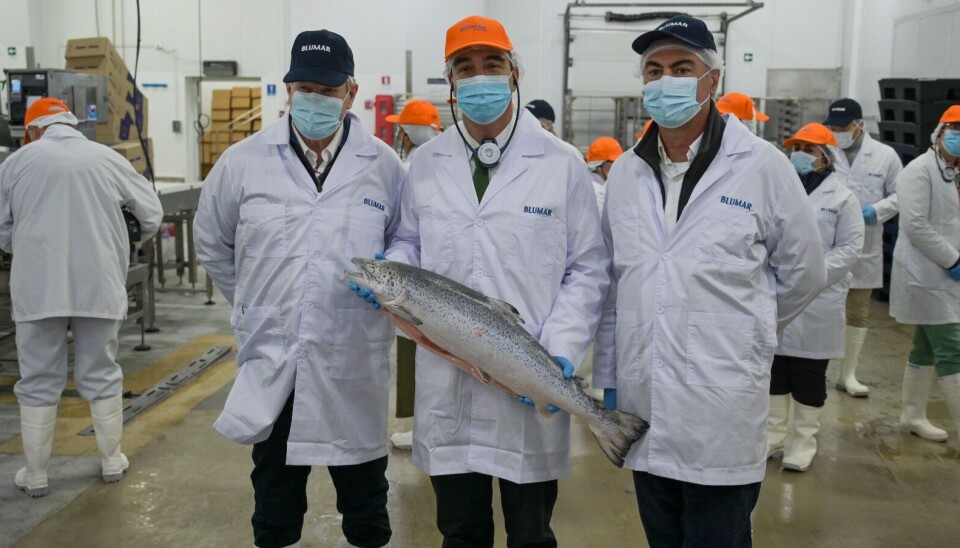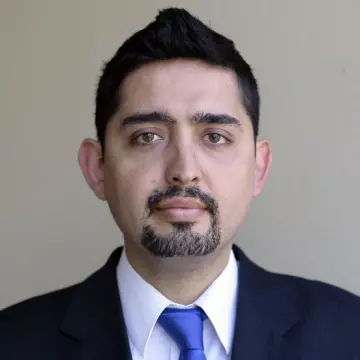
Governor praises ‘socially responsible’ salmon farmer for re-hiring workers
Blumar compensated redundant staff properly after factory blaze and has spent £820,000 to quickly bring back processing jobs to remote Chilean region
The governor of Chile’s Magallanes salmon farming region has praised fish producer Blumar for its treatment of workers following a fire that destroyed a processing factory in February, reports Fish Farming Expert's Chilean sister site, Salmonexpert.cl.
Jorge Flies was speaking at the opening of a formerly closed processing facility that has been leased, refurbished, and re-opened by Blumar. The facility will provide work for around half of the 760 staff laid off after the blaze at the Entrevientos plant that had been jointly operated by Blumar and Chile’s second biggest Atlantic salmon farmer, Multi X.
“The first thing I want to acknowledge is the companies that fulfil their social and productive role within the region. Here, this company, after a serious accident, took care of its workers, with full compensation, and a very good agreement was reached in this regard,” said Flies.
“They always expressed their interest in finding a solution very quickly, and in just a few months, they rehabilitated a plant, leaving it in the best condition, thus rehiring 450 workers, mostly from Entrevientos,” said Flies.
Long journey north
Following the blaze at the Entrevientos facility in Punta Arenas, the company temporarily had to transport live salmon north by wellboat to Chiloé – a distance of approximately 1,100 nautical miles - for primary processing, and then by truck to Talcahuano for secondary processing.
“We want to congratulate them (Blumar) for their social responsibility with the workers, and maintaining the productive axis,” said Flies. “They had the possibility of continuing to operate by taking the salmon harvests outside the Magallanes region but with this (new facility) local capacities are being recovered.
“Social responsibility and environmental care are not enemies, but rather go hand in hand, not in parallel.”
Barriers to progress
Blumar general manager Gerardo Balbontín has recently spoken of his concerns about the use of the coastline in Magallanes - the country’s southernmost, largest, and second least populated region - and the various problems that salmon farming has had in continuing its operations in the area.
According to the general manager, in 2017 almost 60% of the Areas Suitable for Aquaculture (AAA) were removed, when there was a first attempt to make a regulatory plan for the coastal edge.
In addition, Balbontín also highlighted the current problems that exist due to the Lafkenche Law, which was designed to guarantee indigenous people access to the coast for traditional pursuits, but which salmon farmers and other sectors claim is being abused by indigenous groups to claim vast areas of coastal waters.
NGO influence
The Blumar boss is also worried by a controversial management plan that is being developed for the Kawésqar National Reserve with funding from the PEW Trust, a US-based NGO.
“This management plan was made completely behind closed doors with a strong influence from environmental NGOs that are declared opponents of production in general and salmon farming in particular,” said Balbontín.
Speaking at the opening of the new processing facility, Flies said: “We have sat down again to discuss the use of the coastal border in the Magellanic Commission, with sensitive issues such as the Lafkenche Law, and the 40 members will be attentive to the sustainable development of the region in productive and environmental terms.”
He added that “we must reassure all of Magallanes that we will seek the right balance between environmental protection and responsible companies such as Blumar in salmon farming”.
























































